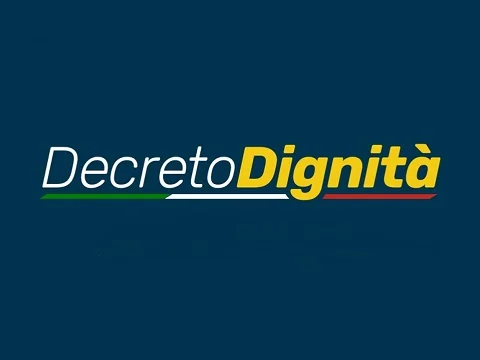What the Dignita decree provides for gaming

In Igaming and online game
A few days ago the Dignity Decree was approved which, among the many regulatory provisions contained on different subjects, provides for the prohibition of advertising games through the use of any means of mass communication.
This is a regulatory provision of not simple implementation in our country. If on the one hand there is great satisfaction between the associations that struggle against the proliferation of gambling and ludopatìa, on the other there are many perplexities and controversies that gravitate around this ban, which is considered a great historical step cultural value "by its author, the vice -president of the Council and Minister of Economic Development, Luigi Di Maio.
But is it really like that? The operators of the sector seem to be very agreed, let alone The Serie A and Serie B teams who have entered into agreements with the brands operating in the online sports betting sector and which, until now, have received several proceeds from sponsorships. Sponsorships that, starting from January next year, according to the provisions contained within this decree-law would be prohibited.
Dignity decree: doubts about its real effectiveness
Sector operators believe that the measures adopted by the government are not at all effective and the risk of running is that of reinvigorate the illegal game market which, in recent years, has been significantly reduced thanks to Concessions issued by the AMS which regulated online and terrestrial gaming and the consequent development of the 100%legal gaming market, safe and controlled by the state.
The ban, according to the standard, applies to any form of advertising, also to that which is exercised indirectly and that concerns games or bets with cash winnings. As part of the decree, sports, artistic and cultural events, as well as television and radio broadcasts are also included. To these, moreover, The press and publications on the Internet are also addednull The ban is also applied to the sponsorships of events, products, services, events and activities of all kinds.
On the effectiveness of the norm, as we mentioned before, there are many doubts. In fact, how do you ask ourselves to carry out effective checks on the web, thus limiting the communication on the net of advertising messages in the gambling sector?
It is practically impossible to monitor the proliferation of websites that day after day appear and populate the Internet pages on the servers and which very often escape any control. An example are the sites of the brands operating illegally in our country that still continue to exist despite the American monopoly has created a black list that over time has become increasingly wide. But the bettors still found the way to connect to continue betting inside the platforms without AAMS license.
Another problem of the effectiveness of this decree-law concerns sponsorships on TV during the performance of sporting events, such as a football match valid for the Europa League or the Champions League. If an American team plays abroad, where they are almost always found in the stadiums of advertising panels that sponsor the brands operating in the sports betting sector or online casinos, how will you prohibit the display of that advertising message? Will the American TV operator have to obscure that part of the field in order not to make the spot appear?
The legal effects of this decree-law would also be devastating for the television rights acquired by the football teams who play in the maximum national and cadet championship, causing an impoverishment for the coffers of football clubs registered in their respective Serie A and Serie B tournaments.
Starting from 24 July the analysis of the provision will begin which will be published in the Official Gazette. In the meantime, several football teams who play in Serie A have entered into sponsorship contracts with the bookmakers and the government, says Di Maio, is not available to a comparison with the sector operators, nor will he make any changes to the regulatory text of his decree. Within 60 days the decree-law must be converted into law or will never produce the legal effects wanted by the government. We will see how the question will evolve and what will happen over the course of these two months.
